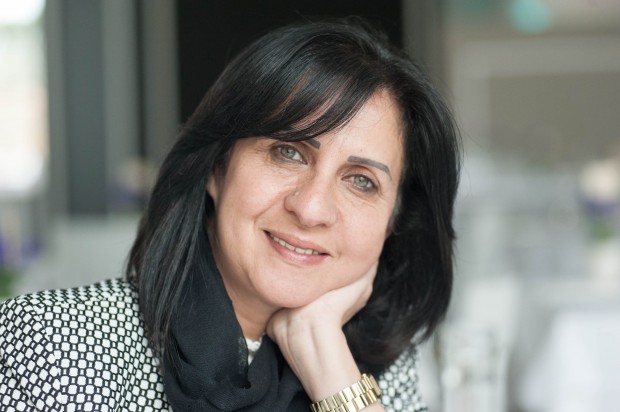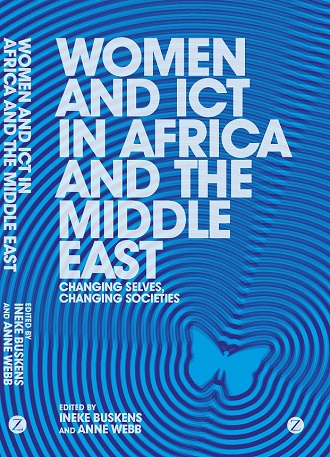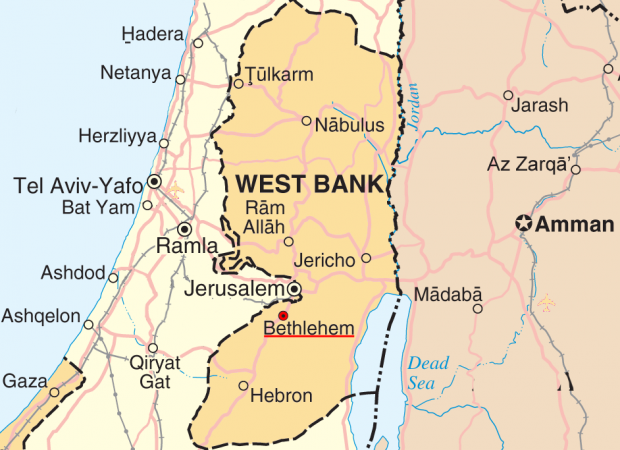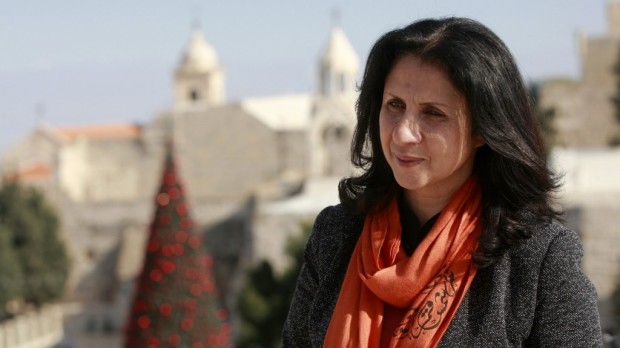A Female Mayor in the Heart of Middle East
Asian countries provide female mayors and governors like in Europe. According to researches, currently, fewer than 5% of the world’s mayors are women and women make up an average of just 20% local councilors worldwide. Mrs. Vera Baboun is one of these female mayors of the Asian continent as the Mayor of Bethlehem.
Her great works effect the role of woman in the political system of Middle East. In our interview, we talked about her political, academic and cultural initiatives which cover wide range of significant works.
Mrs. Baboun, you are the first female mayor of Bethlehem. Can you tell us a little about the election process?
The election process in 2012 was a very vital democratic process. I headed the Fatah Block. There were six blocks competing in the election process. I was the only woman to head a block. After the election process, two blocks were out. From the four blocks, fifteen members went to the council. Than there were internal elections. Palestine uses the Sainte-Laguë method where the community first votes for the council, than the council elects the mayor or the head of the municipal council. The Bethlehem Municipal Council consists of 15 members: eight Christians and seven Muslims. The Mayor and the deputy are Christians. Within the council, we have a 20% quota for women. So we had 3 women and 12 men. I was chosen by nine of the fifteen council members to become the first female mayor of Bethlehem. The process was very challenging. We had to work very hard.
 Did you face many difficulties during the election campaign?
Did you face many difficulties during the election campaign?
No, I didn`t face any more difficulties than any man or woman who competed in the election process. Every campaign faces the same challenges; to convince people to work on the campaign, to speak out about the policies, and how these policies will be applied. It was very important to create a realistic and applicable platform that I can work on for my four years.
To be the first woman mayor of Bethlehem is by itself a real challenge. I am the second female mayor in Palestine. The first woman mayor was in Ramallah from 2005 to 2012. I am the second female mayor in Palestine and the first woman to be the mayor of Bethlehem.
You have several works on gender issues and especially female empowering in the Arab world. Would you share some information about these initiatives?
Yes, I am a professor of English Literature with works on gender issues. During my post-graduate studies, I dug really deep into analytical theory and literature. I became particularly interested in deconstruction theory and gender theory. These theories needs to be addressed in order to really understand the world. The social role of the man and woman, both globally and in the Middle Eastern and Palestinian context, places the masculine role as the main role in the community. Accordingly, I became a lecturer on gender and development, gave different lectures on gender issues, and became a researcher at GRACE Network.
But I also know Palestinian women. Under the challenges of the Israeli occupation, Palestinian women are really suffering. Women have to take care of the household while their husbands are either detained or martyred. I am also a wife of a detainee and martyr. So I have had to take care of my household, my children, and be the main breadwinner. That was why gender became such a huge question for me.
I had to take the major role in my life: how to manage my life, my house, my children, my studies, and maintain the dignity of my family. That is how I came to decide that I have to do more research on gender, teach more about gender, and create more discussions about gender, because as a woman trying to create a change in her own environment, I faced many challenges from gender roles.
 That’s how I became part of the Grace Network, which works to empower women in the Middle East and Africa through the use of information, communication, and technology. I conducted my own research in 2011. The research was published with 28 other papers by different women researchers from the Middle East and Africa. The title of the book is WOMEN AND ICT in AFRICA AND THE MIDDLE EAST – CHANGING SELVES, CHANGING SOCIETIES. And the title of my research is Scheherazades of today: young Palestinian women use technology to speak up and effect change. Through these experiences, I came to recognize and believe that I have a voice that creates my own woman—human identity. I learned to express my voice. This recognition of the power of expression empowered me to accept the first seat nomination for the Fatah block of Bethlehem.
That’s how I became part of the Grace Network, which works to empower women in the Middle East and Africa through the use of information, communication, and technology. I conducted my own research in 2011. The research was published with 28 other papers by different women researchers from the Middle East and Africa. The title of the book is WOMEN AND ICT in AFRICA AND THE MIDDLE EAST – CHANGING SELVES, CHANGING SOCIETIES. And the title of my research is Scheherazades of today: young Palestinian women use technology to speak up and effect change. Through these experiences, I came to recognize and believe that I have a voice that creates my own woman—human identity. I learned to express my voice. This recognition of the power of expression empowered me to accept the first seat nomination for the Fatah block of Bethlehem.
It was not an easy decision, because Bethlehem is a very challenging city. It is a global city that is also Palestinian. Its geography and demography places the city in a real tough situation. Even entering and exiting Bethlehem is a challenge. As a mayor, the biggest challenge is everything that separates Jerusalem and Bethlehem. Even religious sites, such as the Nativity Church in Jerusalem, the Holy Sepulchre, and the Aksa Mosque are separated. Also, many Bethlehem citizens are not able to get out of the city. Only 6% of the 200,000 citizens that live in the Bethlehem district have permits to go and work outside Bethlehem. This places most of them in Area C, which comprises 81% of the total area of Bethlehem.
In Area C, new development projects are forbidden without the permission of the Israeli government. Even inside the Palestinian territory of 1967, I still need Israeli permission to develop anything in area C. This is the challenge of the occupation. There are many other challenges on the ground.
As a mayor, we did our best with the council to announce the new municipal borders of the Bethlehem. This was historically important and strategically necessary to enable better development processes and create a master plan. The city’s last master plan was in 1958, and we have already set out a new master plan for the city. That is a real achievement.
The size of Bethlehem city is considerably small, only about 7.8 km square. The Bethlehem governorate is big and reaches to the Dead Sea, but 81% of the district is Area C. 49% of that Area C is under Israeli military control. So you can not really develop efficiently. You face challenges, but you go on.
How do you feel about being a female mayor in the Middle East?
I feel so proud. For us Palestinian women, to be able to be a woman and to be working at the top of the government is important. Palestine has a few female ministers, such as the Minister of Tourism, and the Minister of Economy. If you are willing to compete in the election process, you have the capacity to work at the top. This is very possible for us. This campaign gave us every opportunity. The challenge is for the woman to believe that she can do it, and that is the real challenge.
The opportunity and the law is all there to give a woman the the opportunity to be elected as community leaders. First you need a woman to believe that ‘I can do that.’ I think we also need to work more on making that more possible. It is not only a matter of having women on the council but having women be capable of leading the changes, and that differs between urban and rural areas. I believe that Palestinians, particularly Palestinian women are very progressive, and we have the conviction that we can achieve progress. Still, we need to work on increasing the current quota of 20% to 30~40%.
As an Arab Christian, you are an important role model for the Middle East. How do you evaluate the available situation of women in the region?
 Well…, this is important for the historical, demographic, and religious context we live in. You know, for me as a woman, my culture is Arab and my faith is Christian. Living in Bethlehem exposed me to many different schools and universities, and I had a big role in leading a progressive agenda in the region.
Well…, this is important for the historical, demographic, and religious context we live in. You know, for me as a woman, my culture is Arab and my faith is Christian. Living in Bethlehem exposed me to many different schools and universities, and I had a big role in leading a progressive agenda in the region.
In Palestine, both Christians and Muslims live under the same challenges of the occupation as Palestinians. For Palestinians, education is not only a right but a national duty—so we can continue to exist. Thus women in Palestine are educated, and many families are keen to educate their daughters. This is an important part of my context. My parents were keen for me to have my degree and supported me in my efforts. I faced a lot of challenges in pursuing my studies, but I persisted to be able to support my family.
As for being a Christian woman in Bethlehem, the voice of the Christian is very important in Palestine. Christians are in Palestine and all over the Middle East. They have created civilizations. They have been there for millenia. My role for the Christian population in Palestine is very qualitative. Together with Muslims, Christians seek to fulfill our code of justice and to live in dignity like the rest of the world.
Do you plan to seek cooperation with other mayors of Asian countries?
Of course! But unfortunately, so far we have very few connections or relationships with Asian cities. Bethlehem is a very global city, and has been for centuries, but we don`t have twinnings and mutual exchanges with other Asian cities. I do look forward to this question starting a process of cooperation with other mayors of Asian countries. Cooperating with other civilizations and histories of development is a win-win process that is very crucial for us.
Is there any problem between the Christian and Muslim population in your region?
Actually, we live here as Palestinians. We can give the best example of a good relationship between Christians and Muslims. We are Palestinians, and we act accordingly.
Do you expect a long term solution of Israel-Palestine conflict? What are your proposals for the peace?
It took 63 years, and things on the ground show that it might take longer if the world community does not recognize the state of Palestine. To recognize the state of Palestine is to recognize the people of Palestine; is to recognize the humanity of Palestine; is to recognize the Palestinians. The way we are living in borders, we are not living a dignified existence, and that is why we need to work harder on this conflict. Israel was recognized by the world in 1948. Palestinians recognized Israel as a state in the 1993 Oslo Accords. Since then, the 1967 territories have been filled with different settlements. Today, in the 1967 territories, there are more than 650,000 settlers, who live in what is supposed to be to the state of Palestine.
We have no time to lose, as the ability of the state of Palestine to exist is diminishing as well. For me, this is not a question of ‘is there a long-term solution.’ I always think the real question is: Why have we not yet seen a solution? This is the question that citizens of the world need to ask themselves. Our conflict needs the intervention of the world community and we need it now. The state of Israel, which we have recognized and the world has recognized, has a responsibility to put an end to this conflict and the occupation. Because there is a big difference between occupier and occupied when it comes to action on the ground.


























































